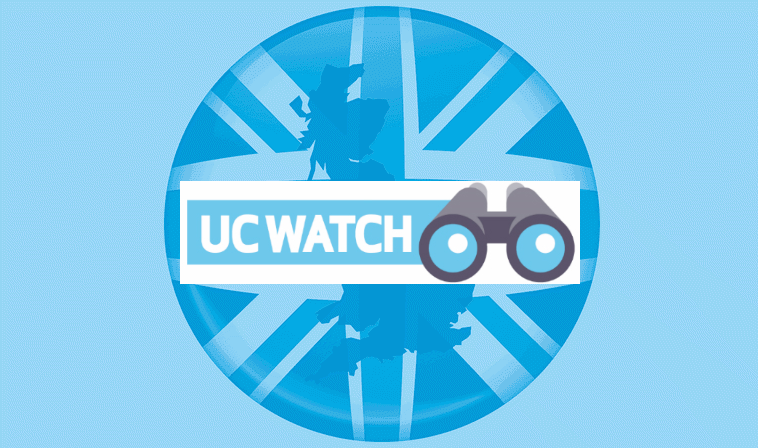A bank account is vital if we’re to receive Universal Credit, as it will get paid straight into our account electronically. So it’s important to make sure that we get the right kind…
To receive Universal Credit, you’ll need to have a bank account or something similar that can receive automated payments, as this is how UC is paid to you.
The Different Options Are:
- Current account
- Basic bank account
- ‘Jam jar’ account (also called a rent account or a budgeting account)
- Some types of credit union account, and
- Prepaid cards
If you are renting from a social landlord, check whether they recommend a particular account – if so, you don’t have to use it, but some landlords will pay you an incentive if you do.
CURRENT ACCOUNTS
Most people use a current account with a bank or building society to manage their day-to-day money. Because you can go overdrawn with a current account you have to pass a credit check to get one, so if you’ve had problems with money this may not be the best account for you.
- Current accounts have all the features you might need, such as automated payments, cash cards, debit cards, Direct Debits and cheques.
- You can access most current accounts through a high street branch, online, using mobile banking or over the phone.
- You can get regular statements to help you keep track of your money.
- Some accounts charge high fees and interest if you go overdrawn, and most have bank charges if there’s not enough in your account to cover a Direct Debit or standing order.
- When withdrawing cash check the machine will not charge you.
BASIC BANK ACCOUNTS
Basic bank accounts have most of the same features as a current account except for an overdraft facility, making them an option if you have a poor credit history. The idea is everyone is entitled to these but you may have to insist it’s what you want when asking in a branch.
- No overdraft also means you can’t accidentally spend too much and get into debt.
- You can (usually) use a cash machine, receive monthly statements and pay by Direct Debit.
- Basic bank accounts DO NOT carry fees or make charges if you don’t have enough to cover a Direct Debit, BUT…
- If you’ve had a basic bank account for a while, it may still allow you to go overdrawn or carry old charges that banks have since got rid of. Check and change it, if you can.
 Credit unions are ‘not-for-profit’ community organisations that are mainly set up to offer savings accounts and loans to their members. Some of them also offer current accounts that allow you to receive electronic payments and set up Direct Debits and standing orders.
Credit unions are ‘not-for-profit’ community organisations that are mainly set up to offer savings accounts and loans to their members. Some of them also offer current accounts that allow you to receive electronic payments and set up Direct Debits and standing orders.
Some credit unions are also developing budgeting accounts. Regular savers can borrow at decent rates. This could be really useful during the move onto UC.
- Credit unions can be an option if you’ve had difficulty opening an account with a bank or building society
- They don’t offer overdrafts, but you might be able to apply for a loan. They encourage you to only borrow what you can afford to repay
- Not all credit unions offer bank account facilities, and there may not be a credit union where you live – so this is not an option for everyone
- Credit union budgeting accounts usually have a monthly fee but this is often fairly low
PREPAID CARDS
Although it is possible to have your benefits transferred onto a prepaid card, there are a few things you need to be aware of before going ahead.
- Prepaid cards come with a variety of charges. You will need to check with the provider before you buy.
- Not all cards allow you to keep your money for bills separate from you money for spending.
- Not all prepaid cards allow you to set up automated bill payments for your rent, gas or electricity. This can mean having to withdraw large sums of cash each time a bill needs to be paid.
However, they do have some advantages:
- You can’t get into debt as there is no overdraft facility on a prepaid card.
- It’s possible to make one-off electronic bill payments with some prepaid cards, giving you control over when the payment is made.
One way of using a prepaid card is to operate it alongside a bank account. You leave enough money to cover your rent and other bills in your account and load all of your spending money onto the prepaid card. This gives you control over how much you spend and means you avoid bank charges and penalties on your account for returned standing orders or Direct Debits.
BUDGETING ACCOUNT
(also called rent accounts and jam jar accounts)
With a budgeting account, you divide your account into different ‘pots’ or ‘jars’. Typically, there are different pots for bills and spending and there may be a pot for saving too. You decide how much money goes into each pot by working out how much you need for your bills and how much is left over for spending or saving.
Some budgeting accounts consist of a basic bank account linked to a prepaid card. So your wages and benefits are paid into the account. You decide how much you need to set aside for bill payments then put the remaining money onto the prepaid card for spending.
Most budgeting accounts come with advice and support provided online or over the phone. They help you set up the account and decide how much money you need to set aside for bills and other outgoings each month.
- The advantage of a budgeting account is that you can be sure that when rent day (or bill day) comes, the money will be there to cover the payment.
- You may be able to arrange text alerts to warn you if your balance is running low.
- You might have access to advice on managing your money
- The disadvantage is that these accounts charge a fee – usually £5-£15 a month – however, you might decide that it’s a price worth paying if it means you can avoid missed payment charges and overdraft fees.

If you’re interested in opening a budgeting account, and you rent a council or housing association property, it’s a good idea to speak to your landlord or council. Some social housing landlords and local authorities are making arrangements with providers (such as your local credit union) to offer these types of account and these often have lower fees or they pay the fees for you.
Alternatively, you could try your local credit union (see above) to see if they offer a budgeting account. Or run an internet search for ‘jam jar accounts’ to see what’s available and compare fees and services.




